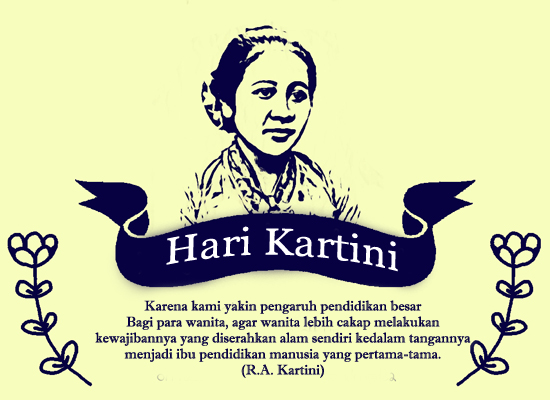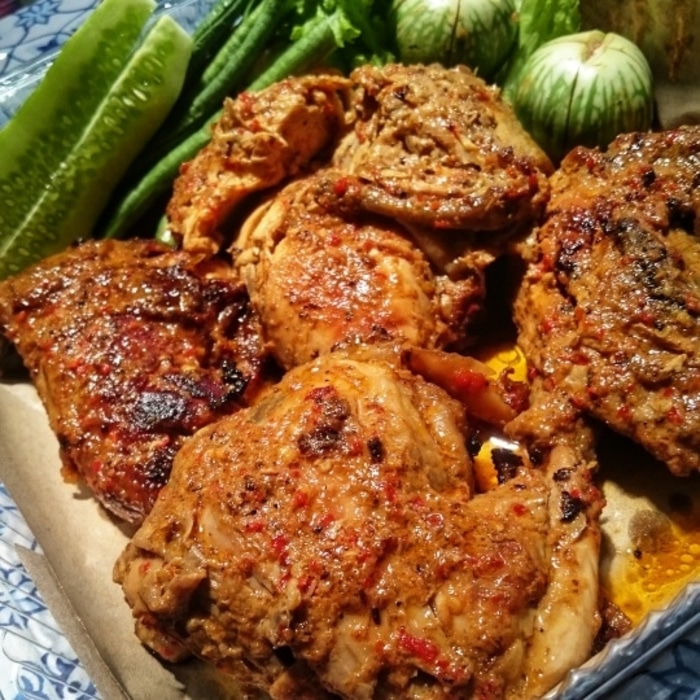Duku, or also known as Lanzome, is the fruit of Southeast Asia native species of tree Lansium parasiticum in the mahogany family. The tree also becomes the provincial flower for the Indonesian province of South Sumatera. The tree bears edible fruits which are popular in Indonesia.
A Duku fruit tree grows as tall as 30 meters in height and 75 centimeter in width. The branches of the tree bear odd numbered leaves that have fine hair beneath their surface.
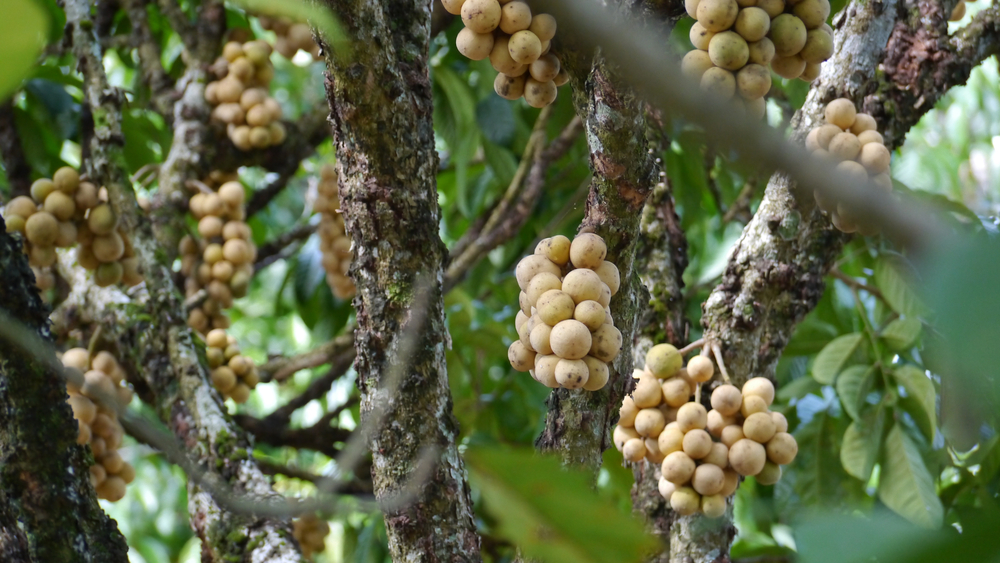
Duku tree fruit can be elliptical, avoid or round, measuring 2 to 7 centimeters. At a glance it looks like a small potato with yellowish skin with usually small brown dots. The skin can be peeled off to reveal white semi-transparent segments of sweet flesh. The smallest segments have no seed while the larger ones have a soft seed that is not eaten. The juicy flesh tastes like a combination of grape and grapefruit, and favored by many.
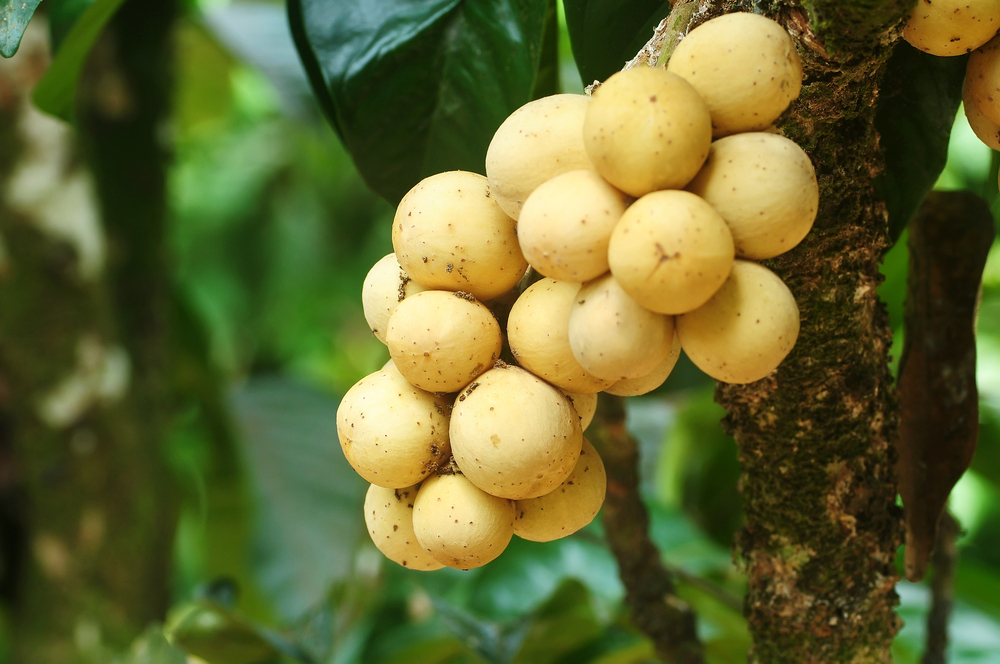
The fruit is available for only a short season each year, usually around January to March, and the best ones come from Palembang in South Sumatera. There are many cultivars of the plant, but there are two main groups of cultivars: Duku and Langsat.
Duku generally have a large, round fruit and thicker skin. The seeds are small, a sweet scent, and sweet and sour flesh. Meanwhile, the variant commonly known as langsat generally has egg-shaped fruits with thinner skin. The flesh is more watery than Duku and tastes sweet and sour. Unlike Duku, Langsat fruit does not last long after being picked. Usually, three days after being picked, the skin blackens—however this does not affect the fruit’s taste.
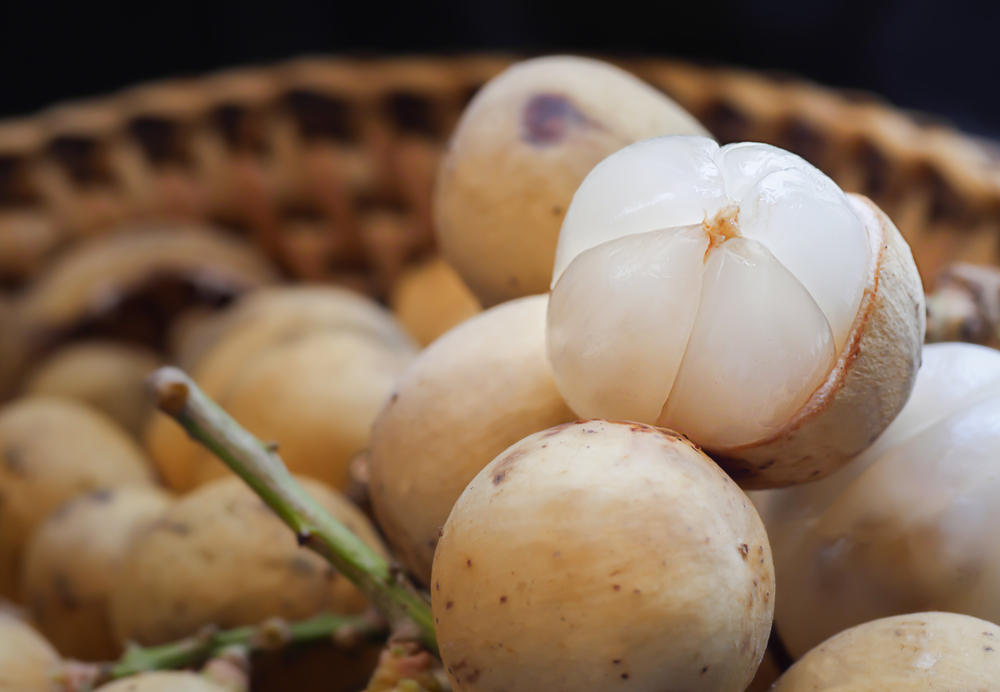
Health benefits
Duku contains the benefits of vitamin C, which acts as an antioxidant in the body. They are empowered to block and reserve damage caused by free radicals that are let out by the body during the process of transmission of food to energy. Duku and Langsat also contain a substantial amount of vitamin A, which is effective in maintaining good eye health as well as protecting the skin.
Duku and Langsat is also known as the powerhouse of fiber. The high fiber content of Duku and Langsat make them considered to be a healthy snack for people with diabetes. The presence of antioxidant polyphenol aids in improving glucose levels by slowing down the absorption of sugar. Fiber is also useful for digestion and prevents cancer in the digestive tract.
Phosporous content in Duku and Langsat’s flesh is effective to strengthen the teeth. Along with the vitamin C to treat gum health, the fruit is good to maintain your oral health.
For beauty, there is one particular Indonesian brand that uses Langsat extract in their whitening product series. Again, vitamin A plays a role here. Vitamin A in Langsat plays a fundamental role in maintaining healthy skin and thus makes your skin looks brighter and supple.
Duku Fruit Nutritional value:
100 grams of duku fruit has
- 7 kcal of calories
- 0.9 mg of iron
- 2 gram of fiber
- 13 gram of carbohydrate
- 0.2 gram of fat
- 0.7 gram of minerals


